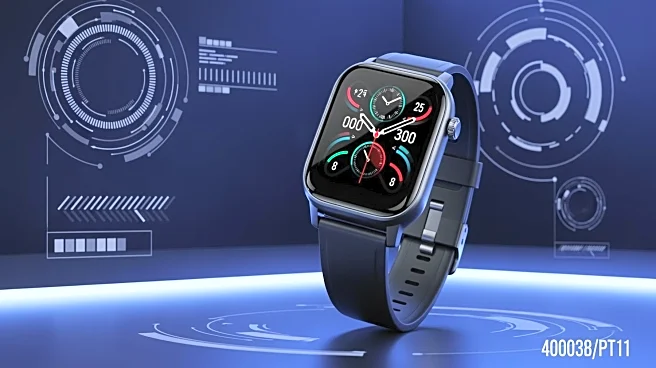What's Happening?
Several tech companies have announced new gadgets and devices aimed at enhancing consumer experiences. KEF introduced an affordable bookshelf speaker system, while Samsung and Google launched a mixed reality headset designed to compete with Apple's Vision
Pro. Leica revealed its first non-rangefinder M-mount camera, the Leica M EV1, which features a 5.76-million-dot electronic viewfinder, making it more user-friendly for modern photographers. Additionally, Audio-Technica released its ATH-ADX7000 headphones, promising a natural and spacious listening experience. These announcements highlight the ongoing innovation in consumer electronics, with companies focusing on improving functionality and user experience.
Why It's Important?
The introduction of these new gadgets reflects the tech industry's commitment to innovation and meeting consumer demands for enhanced functionality and user-friendly designs. The competition among major tech companies like Samsung, Google, and Apple drives technological advancements, benefiting consumers with more choices and improved products. The focus on features such as mixed reality and high-quality audio experiences indicates a trend towards immersive and interactive technologies. This can impact various sectors, including entertainment, photography, and personal audio, by offering more sophisticated tools for both professional and personal use.
What's Next?
As these new gadgets enter the market, consumer feedback and sales performance will likely influence future product developments. Companies may continue to refine their offerings based on user experiences and technological advancements. The competition in the mixed reality space, particularly between Samsung, Google, and Apple, could lead to further innovations and price adjustments. Additionally, the reception of Leica's new camera model may impact its future product strategies, potentially leading to more electronic viewfinder options in its lineup.
Beyond the Headlines
The shift towards more user-friendly and immersive technology raises questions about privacy and data security, especially with devices that integrate with digital ecosystems. As consumers increasingly rely on these gadgets, companies must address potential ethical concerns related to data collection and usage. Furthermore, the trend towards high-quality audio and visual experiences may influence cultural consumption patterns, encouraging more engagement with digital content and media.
















